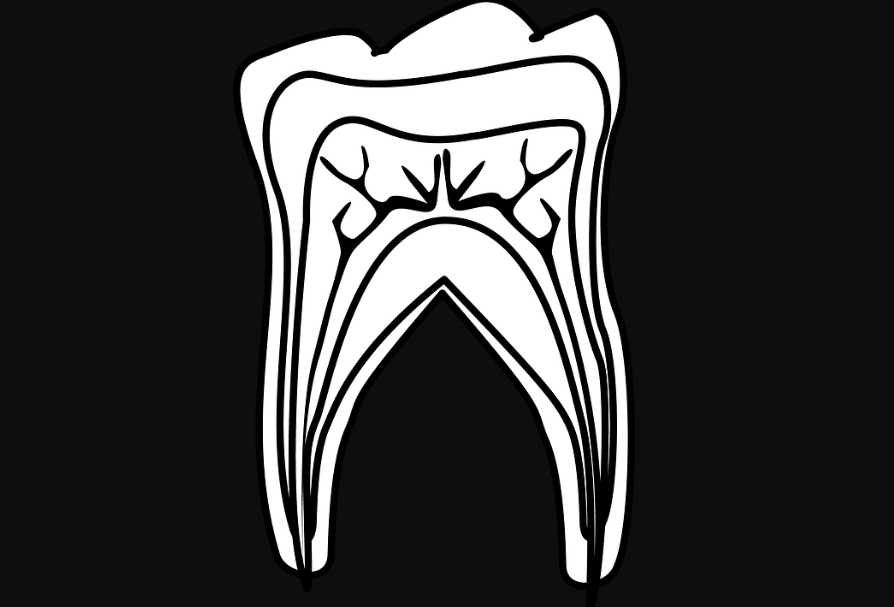“Here’s to hoping the loss of your wisdom teeth doesn’t have a negative impact on your intelligence.”
– Anonymous

(Pixabay / BilliTheCat)
Ah, wisdom teeth. I look back on my own wisdom teeth removal story all these years later, and I still cringe with mortification from my own stupidity. Ironically, one of the least wise things I have ever done in my life happened when I got my wisdom teeth removed.
Now, I consider myself to be a fairly intelligent person, but for whatever reason, my 16-year-old brain did something I’m sure the oral surgeon uses as a cautionary tale to this day: I ate popcorn two weeks after removal. At the time, I thought that I had given my mouth more than enough time to heal, and I further rationalized my decision by telling myself that I was only going to suck on, and not actually chew, the popcorn. You might see where this story is going…
About two days later, I was in such excruciating pain that my mom took me back to the oral surgeon, and he took a look in my mouth. What he found was all four holes packed with popcorn kernels. As he painfully extracted each partial shell and placed them on the blue napkin draped across my chest, he motioned for passing nurses and student dentists to come in and take a look at the grizzly scene. If I could have died from embarrassment, I gladly would have done so.
While I’m not sure that was the most professional thing he could have done, I’m pretty sure that it taught the nurses and students a valuable lesson in making sure that their pre- and post-operative directions were simple, yet detailed enough that even a brain-dead 16-year-old could understand them.
I tell you this humiliating story in the hopes that you will not make the same mistakes. By knowing the process of caring for your mouth before and after wisdom teeth extraction, you are almost guaranteed to have a better experience than I did.
What are Wisdom Teeth?
Wisdom teeth come, not with wisdom, but with age. They typically emerge when you’re between 17 and 25 years old, though they may come in earlier or not at all. Scientists aren’t 100% sure why we have wisdom teeth, but they postulate that it was an evolutionary adaptation to help early humans chew their tough diet of raw plants and meat.
As humans have gotten better at cooking food, however, our jaws have become smaller and weaker, but the wisdom teeth haven’t disappeared. Instead, they crowd out our other teeth and can cause swelling, cysts, infections, and even damage to your other teeth.
When Should You Remove Them?
Your wisdom teeth’s roots may take a little while to develop, so most people choose to have their wisdom teeth removed when they first notice them in their mouth. Removing them before they are fully rooted can help reduce the risk of complications.
What is Impaction?
Your dentist or oral surgeon may tell you that your wisdom teeth are impacted, but what does that mean? Impacted wisdom teeth don’t come in straight; instead, they can grow in at an angle toward or away from your other teeth. Sometimes they don’t fully emerge, which can allow trapped food to cause pain, tooth decay, and gum infections.
Impacted wisdom teeth require special attention during the removal process. Instead of just pulling them out like regular teeth, the dentist may have to make a slit in the gums and then chisel the tooth away from the jaw. This may cause a little bit more discomfort during the healing process than non-impacted teeth.
What Kind of Anesthesia is Available?
Before the surgery, your dentist will discuss the various anesthesia options with you. Local anesthesia and laughing gas will numb you to the pain of the procedure, but you will be awake to see and hear all of the removal process.
If that doesn’t sound appealing to you, you might consider sedation anesthesia. With sedation anesthesia, you will be put to sleep through drugs in an IV, and you won’t remember anything from the procedure. If you have severe anxiety surrounding dental procedures or other medical conditions that prevent you from holding still, you should discuss general anesthesia with your dentist. Keep in mind, however, that if you decide to go that route, your standard dentist may need to send you to a specialist who is capable of performing general anesthesia.
Post-Operation Do’s and Don’ts
You should expect swelling, discomfort, and possibly bruising after the procedure, but if you follow the do’s and don’ts outlined below, you should recover pretty quickly.
Do…
- Brush and floss your other teeth gently starting 24 hours after surgery
- Rinse your mouth with a saltwater solution starting 24 hours after surgery
- Eat as much ice cream, pudding, soup, smoothies, mashed potatoes, etc. for the first 24 hours as you want!
- Keep your head elevated
- Apply ice packs
- Drink a lot of water
- Change your dressings as directed
- Stay on top of your pain using prescribed medication
Don’t…
- Smoke or drink alcohol for a few days
- Use a straw to drink – this can pull out your blood clots
- Eat hot, spicy, chewy or hard foods for at least a week
And, perhaps most importantly, DO NOT eat popcorn for at least four to six weeks.
While most people do not have trouble with the recovery process, you should go to the dentist if you find that you are suffering from severe pain or swelling, fever, excessive bleeding, pus from the socket, numbness, or difficulty swallowing. These could be indicators of significant problems that require treatment from an experienced family dentist.
